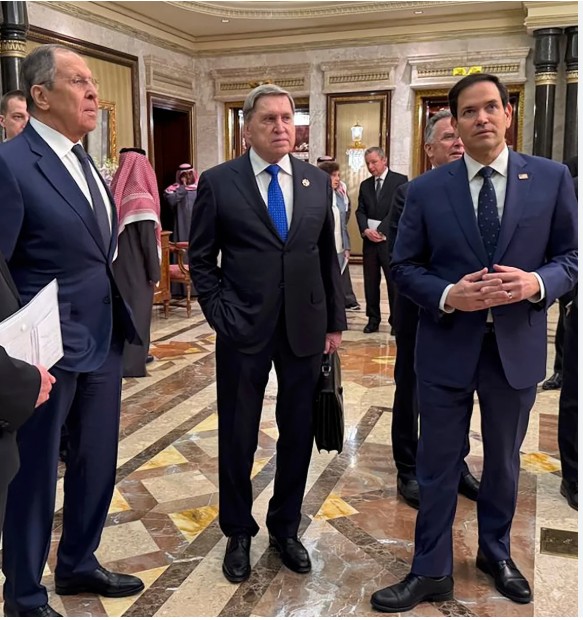U.S. and Russia Agree to Restore Diplomatic Missions as First Step in Ukraine War Talks

In a groundbreaking move, the United States and Russia have agreed to take significant steps towards ending the ongoing war in Ukraine and improving diplomatic and economic relations. This development comes after high-level talks between U.S. and Russian officials, which took place in Saudi Arabia, signaling a notable shift in U.S. foreign policy under President Donald Trump.
The talks, which included U.S. Secretary of State Marco Rubio, Russian Foreign Minister Sergey Lavrov, and other senior officials from both nations, were focused on laying the groundwork for peace negotiations in Ukraine and mending strained diplomatic ties between the two Cold War adversaries.
Diplomatic Progress: Restoring Missions and Initiating Peace Talks
One of the key outcomes of the meeting was the agreement to restore diplomatic staffing at their respective embassies in Washington and Moscow. The restoration of these diplomatic missions is seen as a crucial first step in rebuilding trust and enabling further dialogue between the two countries.
In an interview following the talks, Secretary of State Marco Rubio outlined three broad goals that were agreed upon by both sides. These goals include:
Restoring Staffing at Embassies: Both the U.S. and Russia have agreed to restore staffing levels at their embassies, which had been significantly reduced in recent years due to tensions between the two nations.
Creating a High-Level Team for Ukraine Peace Talks: A high-level diplomatic team will be formed to support the ongoing efforts to bring about peace in Ukraine. This group will focus on facilitating discussions and seeking a peaceful resolution to the war.
Exploring Closer Economic Cooperation: Both sides expressed interest in exploring opportunities for closer economic ties, which could help stabilize relations and reduce tensions in the long term.
Rubio emphasized that these discussions were just the beginning and that much work remains to be done. He noted that while progress had been made, the road to peace in Ukraine and improved U.S.-Russia relations would require continued collaboration and commitment from both sides.
A Remarkable Shift in U.S.-Russia Relations
The U.S.-Russia talks in Saudi Arabia represent a significant diplomatic shift, particularly given the historically tense relationship between the two countries over issues such as Ukraine, Syria, and arms control. The agreement to open a dialogue aimed at de-escalating the conflict in Ukraine is seen as a critical first step in what could be a broader effort to stabilize relations between the U.S. and Russia.
For years, the U.S. and Russia have been on opposing sides of the Ukraine conflict, with the U.S. supporting Ukraine’s sovereignty and Russia backing separatist groups in the eastern regions of the country. However, the recent talks suggest that both nations are now open to exploring diplomatic avenues to end the conflict, despite their longstanding differences.
Republican Lawmakers Respond
Following the talks, Republican lawmakers Marco Rubio, Michael Waltz, and David Witkoff addressed the press, providing additional details about the discussions and expressing cautious optimism about the potential for future cooperation. They emphasized the importance of diplomatic engagement with Russia and stressed that the U.S. must remain vigilant in its efforts to support Ukraine while pursuing peace.
“We are encouraged by this first step, but we must continue to hold Russia accountable for its actions in Ukraine,” said Rubio. “This is a complex situation, and it will require sustained effort from both sides to ensure a lasting peace.”
Looking Ahead: Challenges and Opportunities
While the agreement to restore diplomatic missions and begin peace talks is a positive development, significant challenges remain. The situation in Ukraine is deeply complex, and both sides will need to make difficult concessions to reach a lasting peace agreement. Additionally, the ongoing tensions between Russia and Western allies will require careful management to avoid further escalation.
However, the U.S.-Russia talks in Saudi Arabia have set a new tone for future diplomacy, and the international community will be watching closely to see how these discussions evolve. If successful, these talks could mark the beginning of a new era in U.S.-Russia relations, with the potential to reshape the geopolitical landscape.
